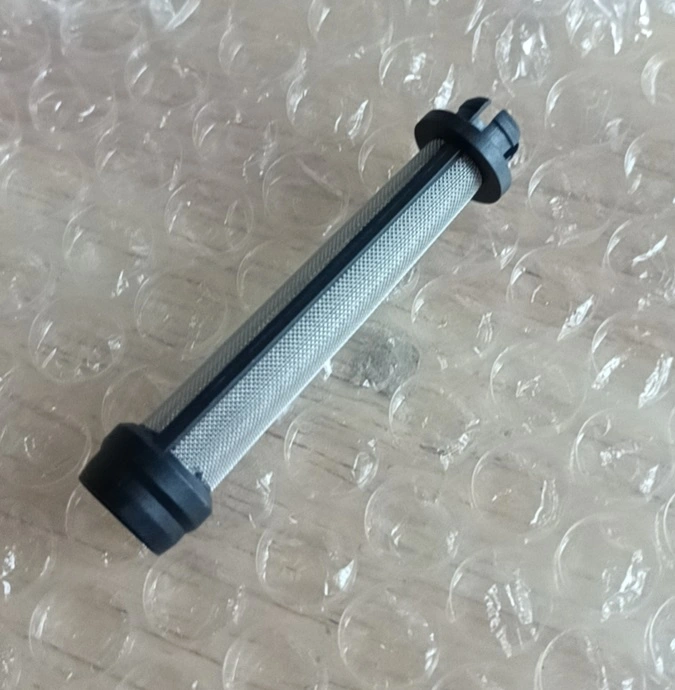Air Filters: Essential for Clean Engine Airflow

Air filters are vital components of a vehicle's air intake system, designed to remove dirt, debris, and other contaminants from the air before it enters the engine. By ensuring only clean air enters the engine, air filters help maintain optimal performance and engine efficiency.
Regular maintenance and replacement of air filters are crucial to ensure proper engine operation, fuel efficiency, and emission control. A clogged or dirty air filter can reduce engine power and increase fuel consumption, making it essential to check and replace the filter periodically.
Air filters come in a variety of designs, materials, and sizes, suited for different vehicle models and engine types. Choosing the right air filter helps maintain engine performance and longevity.
Why Choose High-Quality Air Filters?

High-quality air filters ensure maximum protection for your engine. They capture more contaminants and provide better airflow, which is crucial for maintaining engine efficiency and preventing wear and tear.
Premium air filters are designed to provide better filtration, improve fuel efficiency, and extend the life of your engine. While they may cost more initially, their superior performance and longer service life make them a smart choice for long-term savings.
Upgrading to a high-performance air filter can significantly improve your vehicle’s overall performance, particularly if you drive in harsh conditions or on rough roads where airborne debris is common.
Types of Air Filters

There are several types of air filters available, each with different levels of filtration and performance characteristics. Common types include paper filters, cotton filters, and synthetic filters. Each offers varying degrees of filtration and airflow efficiency.
Paper filters are affordable and commonly used, providing good filtration for standard vehicles. Cotton and synthetic filters, however, offer superior filtration and are ideal for high-performance engines or vehicles used in demanding conditions.
It's important to choose the right air filter based on your vehicle’s specifications, driving conditions, and performance needs to ensure maximum engine efficiency and protection.
Maintaining Your Air Filter

Regular inspection and maintenance of your air filter are essential to ensure your vehicle runs smoothly. Depending on driving conditions, air filters should generally be replaced every 12,000 to 15,000 miles, or more frequently in dusty or polluted environments.
Some filters are washable and reusable, allowing for cleaning instead of replacement. These filters can provide a cost-effective solution, but make sure to follow manufacturer recommendations for cleaning and reinstallation to avoid damaging the filter.
Keeping your air filter clean can help your engine perform at its best and reduce wear on the engine components, saving you money in the long run.
Signs of a Clogged Air Filter

Over time, air filters can become clogged with dirt, debris, and contaminants. A clogged air filter can cause several issues with your vehicle, including reduced engine performance, lower fuel efficiency, and even engine misfires.
If you notice any of the following symptoms, it's time to check or replace your air filter:
- Decreased fuel efficiency
- Engine sputtering or misfiring
- Struggling acceleration
- Check engine light or reduced performance warnings
Replacing a clogged air filter will restore proper engine airflow, improve performance, and increase the overall lifespan of your engine.
Choosing the Right Air Filter for Your Vehicle

When selecting an air filter, it’s important to choose one that matches your vehicle’s make and model for optimal performance. You can find specific recommendations from your vehicle’s manufacturer regarding the type of air filter best suited for your engine.
Air Filters for High-Performance Vehicles

For high-performance vehicles or those used in off-road conditions, consider upgrading to high-flow or high-performance air filters. These filters offer improved airflow, which can enhance engine performance, particularly for vehicles used in demanding environments.
Benefits of Upgrading Your Air Filter

Upgrading your air filter can significantly improve your vehicle's overall efficiency, boost horsepower, and help your engine run cleaner and longer. High-performance filters provide better filtration, which leads to cleaner air entering the engine and better combustion.
What Is the Purpose of an Air Filter?
The air filter’s main purpose is to prevent dirt, debris, and other contaminants from entering the engine, ensuring that only clean air is mixed with fuel for optimal combustion.
How Often Should an Air Filter Be Replaced?
Air filters should generally be replaced every 12,000 to 15,000 miles, but this can vary depending on driving conditions, vehicle type, and the manufacturer's recommendation.
What Are the Signs of a Dirty Air Filter?
Common signs of a dirty air filter include reduced engine performance, poor fuel economy, engine misfires, and visible dirt on the filter.
Can a Dirty Air Filter Affect Vehicle Performance?
Yes, a dirty air filter restricts airflow to the engine, leading to inefficient fuel combustion, reduced horsepower, and decreased fuel efficiency.
Are There Different Types of Air Filters?
Yes, there are different types of air filters, including paper, foam, cotton, and reusable filters, each offering different performance levels and benefits for various vehicles.
How Does an Air Filter Impact Fuel Economy?
A clean air filter ensures proper airflow to the engine, improving combustion efficiency and helping maintain optimal fuel economy by ensuring the engine runs smoothly.
info@brakepads.ltd
+447478549592
sale@brakepads.ltd
